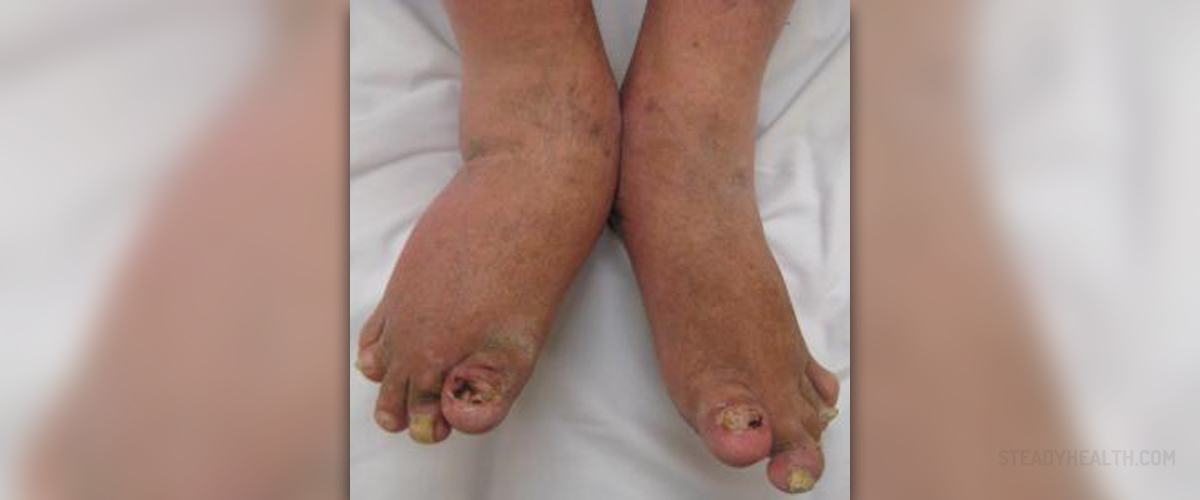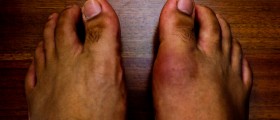
Psoriatic Arthritis - Overview
Psoriatic arthritis is a type of inflammatory arthritis and it occurs in certain percentage of people who are already suffering from psoriasis, a chronic skin condition. Psoriatic arthritis belongs to seronegative spondyloarthropathies. Treatment for this type of arthritis is very similar to treatment for rheumatoid arthritis. The condition affects people of all ages as well as both genders. Furthermore, it is estimated that psoriatic arthritis occurs around 10 years after the onset of psoriasis. It is also possible for a patient to develop psoriatic arthritis without any symptoms or signs of psoriasis.
Majority of scientists believe that psoriatic arthritis occurs due to genetic factors and immune response. The condition features with joint inflammation, pain, swelling and stiffness as well as redness of the nearby skin. The symptoms are actually very similar to symptoms of rheumatoid arthritis but these are two different illnesses.
Psoriatic Arthritis - Prognosis
It is hard to make prognosis regarding psoriatic arthritis. This is explained by the fact that the disease varies a lot among patients and is not unique. The prognosis generally depends on several factors and they include joint damage, role of skin and nails, age factor, gender and genetic factor.
One of the most significant factors in estimating psoriatic arthritis prognosis is joint damage. The more the joints are damaged the worse the prognosis is. The prognosis is also worse in a case more than one joint is affected. Severe damage to the joints leads to excruciating pain and in some cases severe disability. One more factor which is taken into consideration is the severity of the skin and nail problems. In patients whose skin and nail problems are serious the prognosis is not so good.
The prognosis is also worse in case psoriatic arthritis occurs at younger age. If the inflammation (and consequent destruction) affects people who are younger the damage to the affected joints will progress in time and cause serious deformities and disability. Furthermore, it is estimated that psoriatic arthritis leads to more severe symptoms and signs in women. Being so, the prognosis in women is not as good as it is in men.
And finally, there is one more factor which determines prognosis of psoriatic arthritis- a genetic factor. In case patients suffering from psoriatic arthritis have a family history of this particular inflammatory disease the prognosis of their disease is worse. Furthermore, the expression of specific genes (HLA-DR3, HLA-DR4 and HLA-B27) is associated with severe form of psoriatic arthritis.
All the previously mentioned factors determine the prognosis of the disease and if more than one of them is positive a patient will suffer from severe chronic form of psoriatic arthritis.

















Your thoughts on this
Loading...